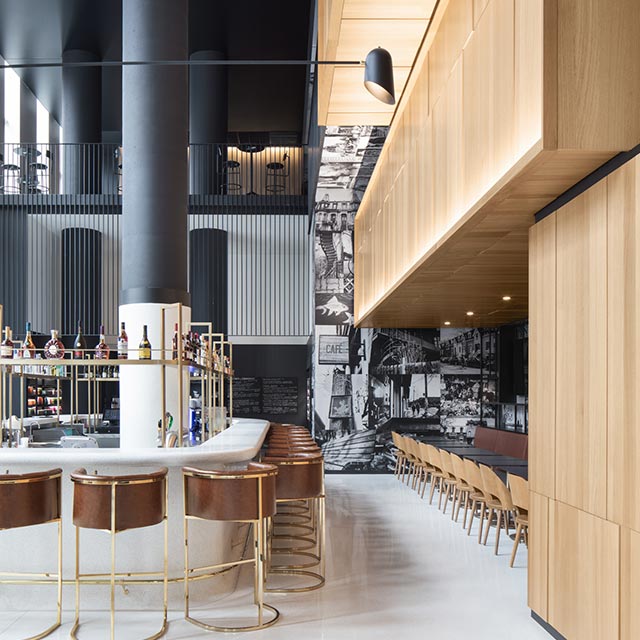4 key principles for successfully leading change in your hotel
Change is not an easy process: we go through multiple emotional stages, from shock to anger, to fear, to depression, to acceptance, and we finally try to make sense of it and welcome peace and serenity. Some people successfully and easily welcome change, but others are more resistant. This is totally normal and inevitable. It’s impossible to force all your staff to accept change, but as a manager, you must prepare and support them throughout the whole process.

Preparing for change proactively
In order to lead change in your hotel with ease, it’s important to carefully plan your change process ahead of time. During this preparation you will learn how to put things into perspective, how to involve all hotel staff together and finally how to make sure everyone feels supported throughout the change process. Moreover, the hotel manager is a key leader of the change process, and needs to be understanding and attentive with their staff.
Identifying the barriers to change
Identifying potential barriers to change will help you better manage them in the future. There are three main barriers to change: barriers directly linked to the individual’s way of work, their personality and their abilities, collective and organizational barriers associated with the company’ values, culture and social norms, and lastly barriers linked with change, which have to do with individuals doubting the changes’ usefulness. In order to convince people you work with, it’s crucial to avoid clouding your own conviction by other peoples’ discouragement. Do not lose sight of the benefits you will achieve with your desired change, and keep in mind the reasons that led you to this change.
Adopting the right methods to fight resistance to change
There is not a single right method but rather multiple different good methods which will allow you to fight resistance to change among your team. Start by proactively explaining the change process to your collaborators, being transparent and highlighting the advantages and weaknesses of this process. Also, mention that this project of change is flexible and can be modified.
Moreover, as an actor of change, you must be convincing but most importantly convinced that this change will be advantageous for your property. Make sure everyone involved in this project understands the benefit of undergoing change and prioritize active and constructive listening in order to spot those reluctant to change. It’s crucial to allow your collaborators to express their doubts and fears related to this change, to reassure and support them throughout the whole process. This will ensure they remain involved in the process at all times.
Viewing change management as a long-term process
Leading change in your property is a long-term process which requires an environment of trust. It’s important to communicate all the necessary information in a transparent manner, to avoid rushing those involved in the change process and to be an active listener. Moreover, identifying each person’s grief will allow you to help them see the added value brought by this change. You should convince them to see this change as an opportunity to live a new experience and to innovate in order to offer the best possible experience to your guests.
Leading change in your hotel will involve your staff, management and other stakeholders, and it is therefore crucial to involve them from the get-go. Additionally, preparing for change proactively, identifying the barriers to change, adopting the right methods and viewing change management as a long term process are principles to keep in mind in order to successfully lead change in your property!
 Log in
Log in


























